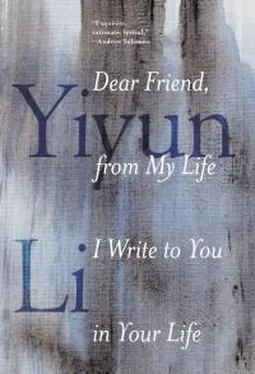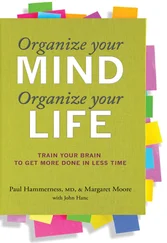Philip Larkin, on his deathbed, asked that his diaries be destroyed. His request was carried out by Monica Jones—his longtime friend, intermittent lover, and later companion. Other private papers she allowed to be made public, a controversial outcome from a debatable will. At our first meeting William Trevor talked about one’s wishes being misinterpreted, giving Larkin as an example. On that day I was aware that my understanding of Trevor’s concern was hypothetical. I was thirty-four and he was seventy-nine; I had published one book, he, more than thirty. That one’s words would be misinterpreted seemed to me as inevitable as death itself. What I did not know yet was that a young person’s fatalism was only bravado.
When that bravado failed, fatalism became fatal. Or, to make a more honest statement: unless shut away in a journal that will be safely and timely burned, one’s words will always be read, by design or by accident. Hiding behind those words is like entrusting one’s self to a straw house—there is the wind, there is the wolf, and above all, there is one’s urge to destroy the house before it is destroyed by an external force.
Between the two hospital stays, I was in London for a few days by myself. The hotel, a narrow house on a quiet street, had a strip of a garden guarded by high walls, and I spent much of the time there reading Katherine Mansfield’s notebooks. When it rained I moved to the sitting room, which was hidden from the hotel entrance. Other guests appeared, but they were either too busy or too idle, and none of them seemed to be able to sit still for long. There were sights to see, and business to conduct. There was also time to kill. A woman picked up and put down a magazine without opening it; a son in his thirties walked into the garden once and again, bringing the same news of rain to his mother; a man studied the marble fireplace before his wife and daughters joined him.
To appear as the most idle person in the hotel—to not have to venture out for business or sightseeing—and to be able to sit still for hours: only in retrospect do I understand this extrication as a dangerous sign. It is an experience similar to when a child stares at something close until he only sees nonexistent patterns—the mind makes up what it wants to see.
Both busyness and idleness make people fidget. The busy scatter themselves around, refusing to be occupied by only one thing at a time; the idle are engaged with a thousand trifles. The worst kind of fidgeting is that of one’s mind. In London, the more agitated I was internally, the calmer I remained physically. I did not have to fight the urge to turn a dark hotel room into a tomb as I had in Ireland months earlier. The stillness I carried was enough to make the world retreat.
That year I traveled frequently. In a hotel in Edinburgh, I sneaked into a medical conference and read the posters about fractured bones and inflamed tendons, imagining what might have been mine, a scientist’s life built on facts and diligence. In an Idaho homestead—Ezra Pound’s birthplace—where I was the only guest on the second floor while the first floor serves as a museum, I held still when visitors entered, fearful and yet curious whether someone would lift the red velvet rope and walk upstairs. It was the week immediately after the first hospital stay, and against everyone’s warning I had insisted on going to Hailey, where Pound started his life and near where Hemingway, seventy-six years later and ten miles away in Ketchum, ended his. At the airport in New York—returning from another trip to London—when the computer system crashed and trapped in line hundreds of immigrants, wary and patient, I entered the country with unquestioned ease, the first time I traveled with an American passport, a small gain in a year of ungraspable loss. Each trip had been meant to renew a belief that I had forgotten. Nothing matters. The belief was fallible, but I knew from experience that absence is more reliable than presence, and a lie sustains life with absoluteness that truth fails to offer.
—
MY FIRST YEAR in college, the university arranged for a reunion with the officers from the army. Our freshman advisor, who was male and thus not allowed to enter the female dorm, waited at the building entrance. When I did not present myself, he sent someone to fetch me, and I hid behind the curtain on the top bunk, refusing to respond to the knocking on the door. There was no reason to reencounter the past, I rationalized; no reason to complicate a time line when it could be separated into terminable fragments.
Before graduating from college, a dorm mate asked me to sign a T-shirt that had collected many signatures already. I did what I was asked to, though I must have shown reluctance, as my boyfriend—later my husband—reproached me for my aloofness. But I don’t see the point of adding one more signature to the T-shirt, I said; in any case she and I will probably never see each other again.
I believed at that moment I was speaking of a fact. Was I speaking a genuine feeling? Perhaps only to the extent that I wanted it to be true. The truth is, I knew I would not forget the girl with the T-shirt because she, like most people I have met, had qualities that made me curious—in her case, it was the disarming way she mocked her own mediocrity. I knew too I would not forget the officers, who, without the army camp to grant them protection and authority, would only look inconsequential and lost in Beijing. To remember is my instinct.
The possibility of being remembered, however, alarms me—it is not from the wish for erasure, but the fear that people’s memories will erase something essential. Expectations met and unmet, interpretations sensible and skewed, understanding granted or withheld, scrutiny out of kindness and malevolence—all these require one to actively accommodate others’ memories. Why not turn away from such intricacy? The less I offer you something to remember, the better I can remember you.
The source of my difficulty, I had decided before I went to London, was that I had gone astray from my belief. For years Tolstoy ended his journal each day with three letters, initials for the Russian if I live. Every month he began with the note nearer to death. How did I forget to start each and every page of my journal with the reminder that nothing matters?
—
WHEN I WORKED as a researcher in a hospital laboratory, I studied asthma with mice as the animal model. My job was to inject ragweed into the mice over a period of time and measure the effectiveness of a new drug. There was a glass chamber where I put the mice to induce asthma and analyzed their breathing pattern. That and other data informed the progress of their illness, though imperceptible to me was how they felt individually. Suffering alone is not measurable.
The word asthma is from Greek, meaning “panting.” But in ancient Rome, the doctors nicknamed it “rehearsing death.” I took note of this detail while reading Seneca’s letters. Seneca, like Dickens, Proust, Dylan Thomas, E. B. White, Elizabeth Bishop—the list could go on—was afflicted with asthma. (Lotte Zweig’s unalleviated suffering from asthma was given by Stefan Zweig as one reason for her suicide.) Everyone, sooner or later, draws a last breath. Sometimes I think how tiring it is to read about artists with their mental illness. Wouldn’t it be curious to study those who rehearse their deaths?
Elizabeth Bishop, on reading the death notice of Dylan Thomas, wrote to friends: “It must be true, but I still can’t believe it….Thomas’s poetry is so narrow—just a straight conduit between birth & death, I suppose—with not much space for living in between.” During the months bookended by the two hospital stays, in June and in October, I returned to that letter often. A narrow conduit between birth and death —I had always believed in the necessity of treating my life in the same manner. The space deprived oneself is allocated to one’s characters; the excursions one takes with them, distractions and delays, are an antidote to impatience. You’re impatient with yourself, with your work, with others, a friend said to me around this time; you’re the most impatient person in the world.
Читать дальше












